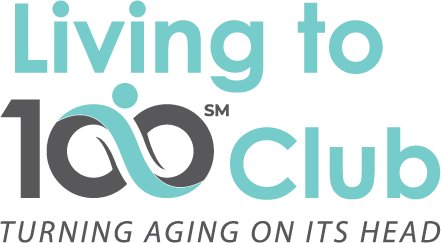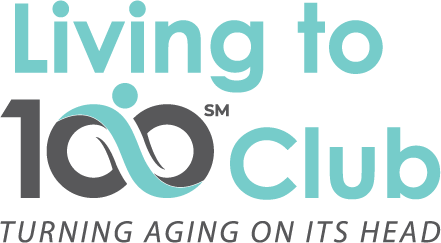From time to time, everyone gets to feeling sad or blue. We all face disappointments and losses, illness, financial setbacks, and other stresses. Usually, the feelings of sadness or disappointment lift and our mood gets back on a level footing. But if a sadness persists over several weeks, this short-lived situation is not so short-lived. When sadness and low mood persist, depression may be the culprit.
The good news is that the majority of older adults are not depressed. According to the Centers for Disease Control and Prevention, fewer than 5% of those over age 65 who are community dwelling in the U.S. report experiencing depression.
There are different types of depression, with different clinical signs and severity, and several causes, but my goal here is to highlight the most important things people in this age bracket need to know.
First, depression is never normal, and should not be seen as typical of old age. However, people who are older may be at higher risk for depression because it can be easily triggered by other illnesses and chronic diseases in this age group. Even higher health care costs can trigger depression.
Historically, depression can be overlooked or under-diagnosed because it can be seen as a natural reaction to illness or serious life changes. However, because depression is difficult to identify in older adults, it is also under-reported.
Common Signs
There are some common symptoms of depression. None of these alone means you are depressed. Rather, several (i.e., 5 or more) seen together would raise the suspicion of a clinical diagnosis:
- a loss of interest in activities and events that used to be pleasurable
- difficulty sleeping, especially awakening very early in the morning
- feelings of hopelessness or pessimism
- decreased energy and feelings of fatigue
- difficulty concentrating, making decisions, and with memory; often, depression looks like and can be mistaken for dementia because of the mental slowness and decline
- loss of appetite and weight loss, or overeating and weight gain
- feelings of guilt, worthlessness, and low self-esteem
- negative thoughts about living longer, and seeing no reason to go on living
It Is not unusual for a depressed person to report bodily aches and pains – usually vague complaints. For some people, it is easier to report physical complaints that to say, I’m depressed.
Two Problems with Under-Diagnosing Depression in Older Adults
If seen as an inevitable consequence of aging, many won’t seek treatment, which can rob you or a loved one of a higher quality of life. Depression is a treatable condition, just like high blood pressure or diabetes. Whether by anti-depressant drugs or psychotherapy, depression can be treated successfully.
Most importantly, un-treated depression can lead to self-destructive or suicidal behaviors.
Support and Help
If you are feeling depressed, or if you know of someone who may be depressed, seek professional help. Contact your primary care provider, local psychological association, medical insurance plan, or other community resources.
If there are thoughts of suicide and not wanting to go on, call the National Suicide Prevention Lifeline at 800-273-8255, day or night.
In addition, when reaching out to someone who is feeling depressed, think about empowering her to have more control and mastery over her environment.
Remember the acronym A-R-K:
- pay attention and show interest,
- offer reassurance about overcoming the difficult changes,
- and use kind firmness and specific suggestions to help the person re-engage; this includes suggestions like, Here’s a menu for ABC restaurant, why don’t you order our dinner online and get it delivered or, I’d like you to come with me to pick out a new paint color for the bathroom.
If feeling depressed, ask yourself how you will know when you are no longer depressed. If the answer involves a behavior change, then plan on taking on the behavior before the depression lifts. Often, the behavior is what changes the emotional state, and not the other way around. If I wasn’t depressed, I’d go back to playing cards with my friends. Prescription: schedule a time to start playing cards again. If I wasn’t depressed, I’d open the curtains when I get up in the morning. Prescription: start opening the curtains every morning. The depression may begin to lift. Read about behavioral activation to learn more.
Finally, one thing that depression does very well is narrow our perspective. All we see are the losses, the failures, and what’s gone wrong. It acts as a filter, blocking out the positives and the good things all around us, what’s still going right. Try to remove the filter: look at the whole picture, 360 degrees, all around, the bad and the good.
Here at the Living to 100 Club, there is a strong emphasis on successful aging. But, as I also say, there are bumps that come along and get in the way of living happier and healthier. Depression is one of these bumps. I hope this article is beneficial to anyone who may be down in the dumps. This is a temporary setback; we can get back on our feet and re-engage with life. If you would like to talk about this in more depth, here is an option.
Dr. Joe Casciani is the owner and Chief Curator for the Living to 100 Club, a source of solutions to living longer and healthier, with a special focus on mindset and attitudes about aging. He has a 40-year history as a psychologist and manager of mental health practices specializing in behavioral health services with older adults. In addition to his work as a clinical consultant, he is an engaging and inspiring speaker, and helps audiences move beyond their questions and concerns about aging to create a vision of what is possible in the years ahead. He strongly believes there is value in helping people feel inspired about their future.


